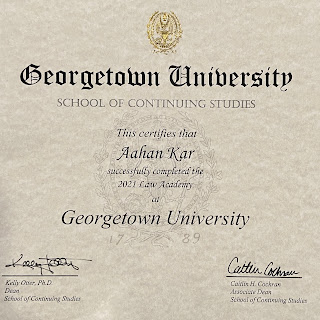A two-week long coding and AI summer camp was called Inspirit AI. In this session, we studied artificial intelligence (AI) and what it is, what it does in the world today, and how coding can help further AI in the future. We learned about coding after mastering the fundamentals of AI. Python was the coding language we studied in Inspirit AI. I chose to join this program because I wanted to learn more about coding and explore my potential applications for it. The program at Inspirit AI was divided into two weeks. During the first week, we learned the fundamentals of coding and AI, and during the second and last weeks, we applied what we had learned from the prior weeks to create a presentation on how to code for our project. Each day's courses would last for two and a half hours.
The first day of the program began with the teachers discussing the fundamentals of AI and how it is applied in people's daily lives. Following this, we split up into separate breakout rooms with various professors to study the fundamentals of Python. On the second day of the course, we discovered several uses for Python, including machine learning. We used linear regression for our machine learning, essentially AI that predicts how something will turn out. We learned how to use Python for logistic regression on the third day of the program. Logistic regression is very similar to linear regression, except that it uses linear bounds to predict the prediction. The fourth day was dedicated to teaching us about NLP, or natural language processing, which is how computers translate human language. We studied computer vision and neural networks on the last day of the first week, which is how the computer detects images. Next, we used Python to enhance computer vision.
Our project was initiated during the second week. This assignment incorporated every subject we learned about the previous week. I worked on a project called disaster relief. We essentially created routines that would aid AI in tweet detection and ensure that the AI is aware of the tweet's topic. For instance, if the tweet contains the term "water," our technology would enable the AI to recognize that the message is discussing water resources. We created a presentation to describe the operation of our project to the audience once the project was completed. We were done after giving our presentation.
Overall, I thought this was a fantastic software because up until now, my experience with Python scripting had been limited to small tasks. It was interesting to see how we could use Python in practical situations; it truly helps you appreciate how far technology has come. I believed that knowing about AIs and how they work was incredibly beneficial because if you could comprehend how the AI works, then this entire summer camp was pretty simple. I didn't encounter many issues, but I felt that the program's speed was a major issue because some pupils found it challenging because they had never used Python and had only received a brief introduction. In conclusion, I suggest enrolling in this program if you wish to work in the technology sector.





